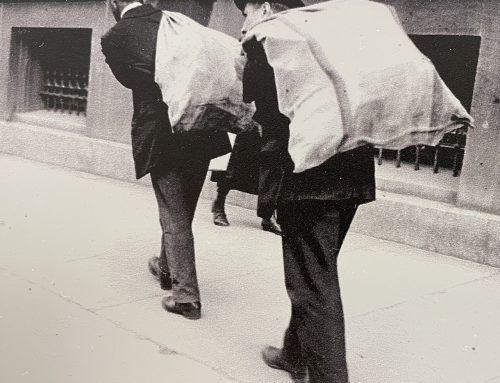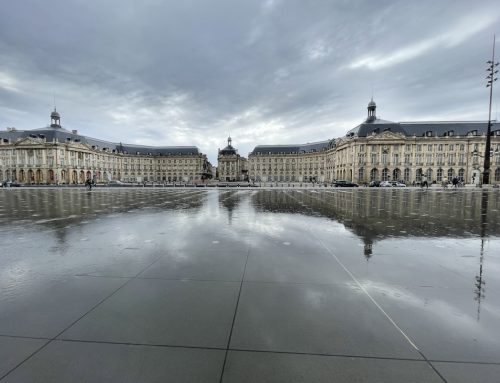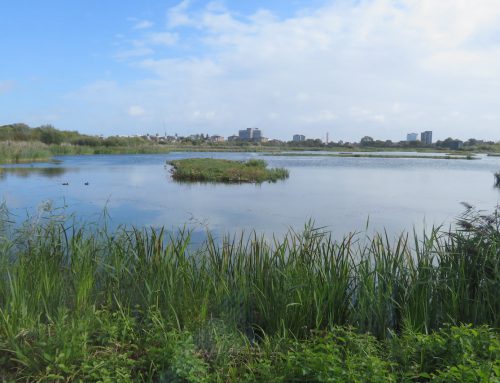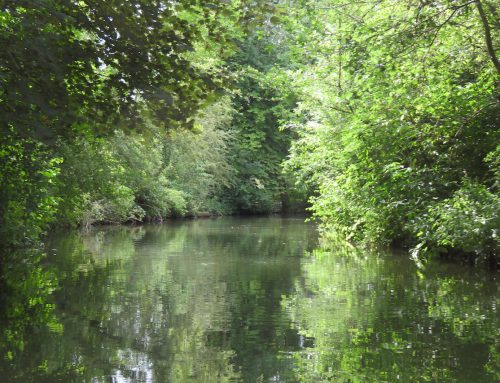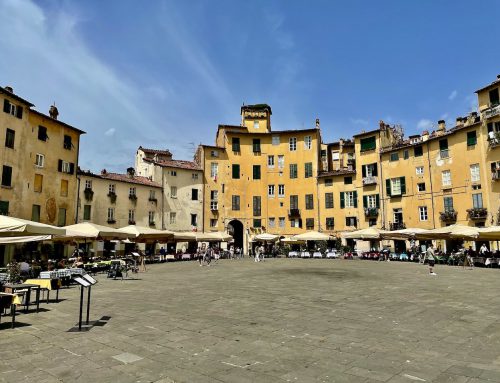Where strange things happen
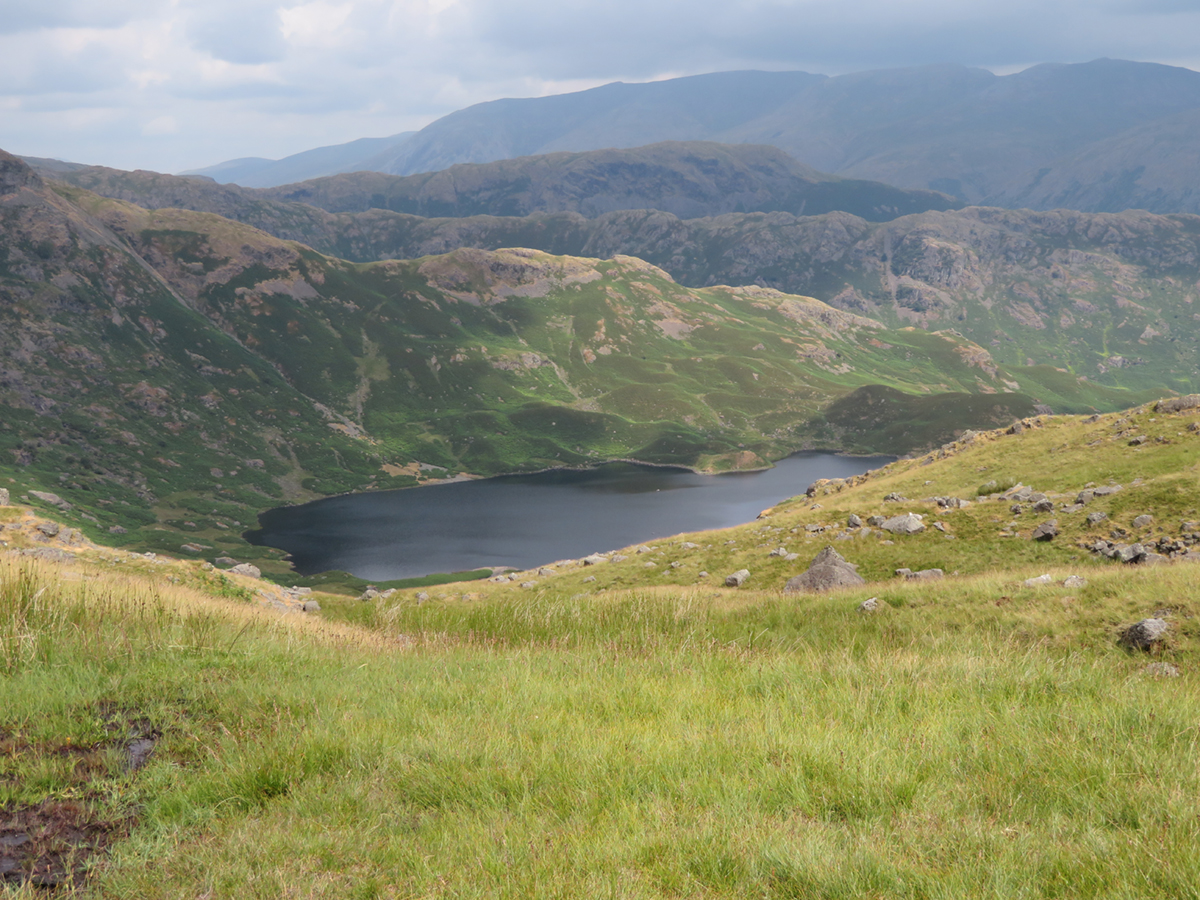
Looking down from the peace and quiet of Blea Rigg

Looking down from the peace and quiet of Blea Rigg
Blea Rigg, near Grasmere, Cumbria, United Kingdom
Many years ago, I met a farmer who had spent much of his life shepherding sheep. “You know,” the farmer said one day as we sat together swopping stories of the world, a thoughtful expression to his face, “I have yet to learn why sheep were invented.”
“Wool?” I suggested.
“Maybe,” he replied, “although the breed I handle is pretty hopeless for that.”
“Grub?”
“The world’s turning vegetarian.”
“Are they as daft as they look?” I asked.
“Dafter,” came the farmer’s reply, as he shrugged his shoulders for emphasis. “That’s what I mean. Sheep are too thick to have any use at all. Or, if they have one, I must have missed it.”
And that was where the topic ended, as we moved swiftly onwards to subjects such as pubs and beer and politics, and matters male that should never make it to print. For years afterwards, I looked at sheep with a mixture of sympathy, disdain and slight wonder.
Until today, as I sat on a flattened rock in the middle of a featureless landscape, somewhere the Cumbrians call Blea Rigg, blue ridge is its translation from the local dialect. My mind was a mile away, perhaps further, wondering how Blea Rigg acquired its name when there was nothing ridge-like or blue about it. I was slowly making progress through the mound of chocolate and biscuits I carry with me when I wander hills and mountains, so often alone and unaccompanied. I had chosen Blea Rigg for its loneliness and the likelihood I would remain undisturbed.
It was as I pondered, without reaching any form of conclusion, that I sensed something, maybe someone, very near to me, albeit slightly behind my right shoulder. For some reason I did not jump, the feeling was non-threatening, so I turned, slowly, quietly, to see a sheep looking directly at me, peeking through the thinning grass. The animal - I have no idea of sheep gender - could have been no more than three feet away. It was certainly young, I would guess the sheep equivalent of teenage, and definitely interested in this strange bipedal alien, me, who had invaded its territory for a moment. The animal was so close, I could see up its nose, into its eyes, see the occasional and tiny insect crawl across its coat. This was a sheep close and personal. I heard it breath, saw it blink sideways as sheep do, and for some reason it seemed utterly unafraid.
So, I did what anyone might, which is perhaps why I walk the hills unaccompanied. I spoke. Yes, I actually spoke to a sheep, on a mountain, in the middle, of the middle of nowhere. In the place someone called Blea Rigg.
It was simple. Anyway, I wanted to know and for a moment persuaded myself I would be able to understand a reply.
It felt utterly natural that I should I ask the sheep a question. So much appears natural on a mountain. So much can feel unnatural as well.
“Why do they call this place Blea Rigg?” I asked, being sure not to raise my voice even a semitone. I smiled, too, certain the animal would think me frightening and disappear into the distance in a jiffy.
As I spoke, the animal tilted its head to one side maybe a few degrees, its blinking stopped, its breathing steadied and it pushed its head a tiny bit forward. It wanted to be closer, not further away. It was wishing to be friendly, interested. It wanted to join in and know, perhaps, what this strange human being was doing. It was manifestly listening and, for all I knew, manifestly understood.
I remembered then something I had read years earlier, something at which I had laughed and instantly disbelieved. Sheep, they said, were cleverer than we know and, if the United Kingdom’s Cambridge University was correct, could match the intelligence of monkeys, even humans. They could recognise colours and people and could respond if you called their name. They understood human emotion and could learn to love human company. One Yorkshire farmer had even reported that his sheep crossed a cattle grid by rolling on their backs. Now that is what I call intelligence.
It is the herd behaviour of sheep that makes them look daft, as they run down the middle of a country lane for mile upon mile, trying to flee your vehicle. It is the way they move, stiff-backed, like a pantomime pony, that makes them appear stupid. Yet the sheep is a perfect example of why a book must never be judged by its cover.
Respectfully, and intelligently, my sheep, the inquisitive teenager, waited until I had finished speaking. Then I heard it sigh, a distant sound of bellows releasing air. Next, it brought its head to the vertical, gave a transient “Baa”, released something sheep-like from its rear, turned carefully with its head lagging for a brief moment, and then started forward to trot into the distance. I sat on my rock quite frozen, astonished at the animal’s reaction. I had just spoken to a sheep.
“I’ve never seen that before.”
It was a female voice, which made me jump. Damn it, I was not alone. There was more to this mountain than the sheep. Me, the sheep, Blea Rigg. Surely not someone extra? The mountains are meant to be lonely. I go there for peace and ponder. It was why I had chosen the route. Yet here I was, slowly being surrounded by society.
I swung back to my front, casting a last glance behind at the disappearing animal as I did so. This time I was not feeling relaxed. Sheep are one thing, humans another. The new visitor was thin, perhaps mid-forties, and dressed entirely in black; Lycra leggings, crumpled Goretex jacket, both the colour of her hair. Her rucksack, glossy black and strapped tightly, was half the size of mine. Instantly I had rucksack envy. It is well known on the side of mountains. There is a constant law for all walkers. A fellow walker’s rucksack always seems lighter than your own.
“Seen what?” I asked, trying hard to smile in welcome, yet knowing what she would reply.
“The sheep, listening to what you were saying,” she answered. “They’re not meant to do that.”
And then she was away, my surprise visitor who had been silently watching the man-sheep exchange throughout, on Blea Rigg, a name without sense or logic, and as remote as Lakeland can offer. Blea Rigg, the Lakeland mystery, the place where strange things happen, the place where strange people can go, and the place where sheep understand.
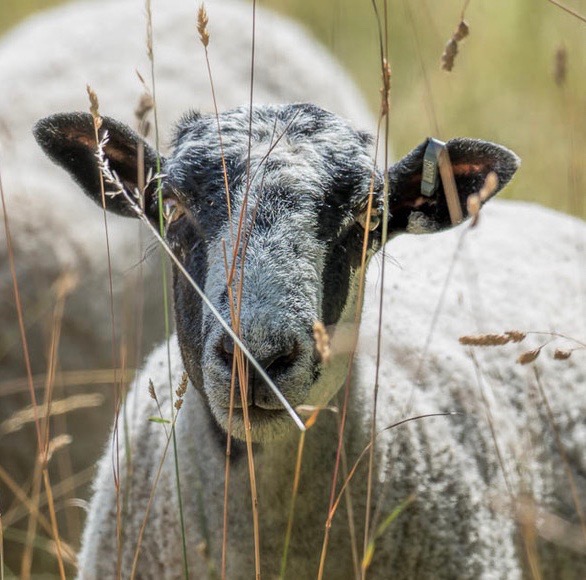
Peeking through the thinning grass

